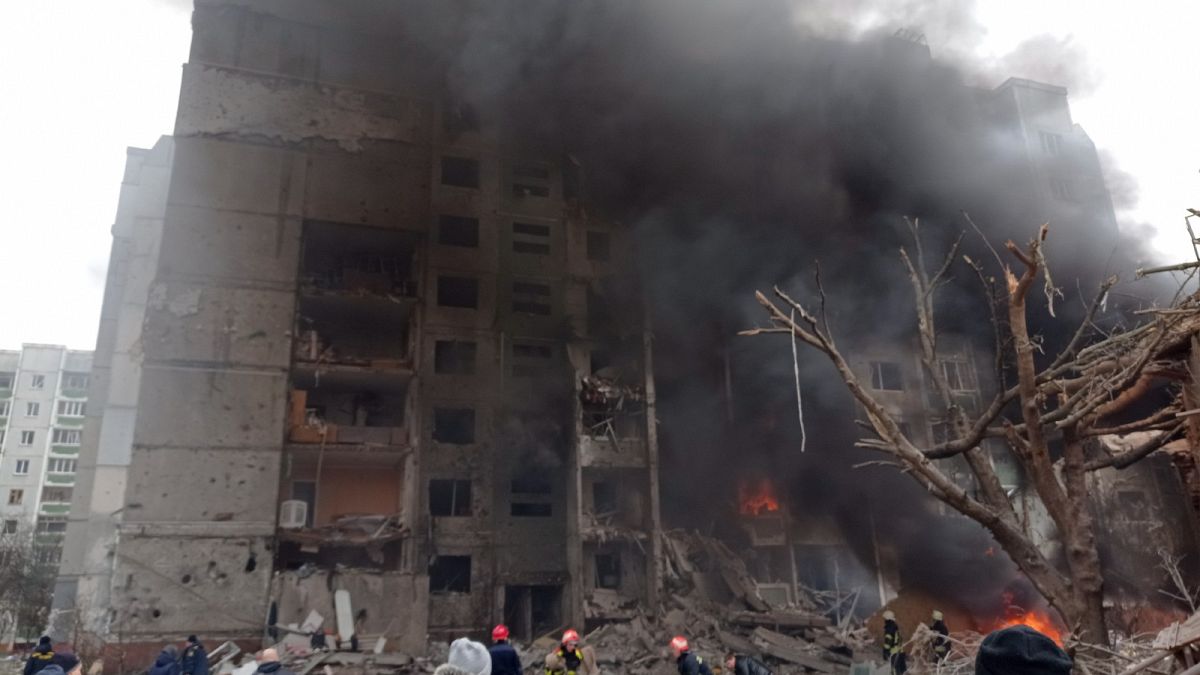In a 90-minute phone call, Vladimir Putin made clear to the French president his "great determination" to continue the Russian military onslaught "all the way", according to the Elysée.
Ukrainian President Volodymyr Zelenskyy has called for direct talks with Putin, arguing "it is the only way to stop this war."
"We are not attacking Russia and we do not plan to attack it. What do you want from us. Leave our land," he said.
Meanwhile, Ukrainian and Russian negotiators agreed to create humanitarian corridors in a second round of talks held Thursday at the Belarusian border.
It comes after French President Emmanuel Macron said he believes "the worst is yet to come" from Russia's bloody campaign in Ukraine after a long phone call with Vladimir Putin on Thursday, according to the Elysée.
The Russian leader made clear his "great determination" to continue the military onslaught with the objective of "taking control" of the whole country, the French president's office said. See more in our blog post below.
Russian forces have continued to bombard Ukrainian cities, seizing the southern port of Kherson and encircling Mariupol on the Azov Sea. More video evidence has emerged of massive destruction in residential areas.
Follow our live blog below for the latest updates:
